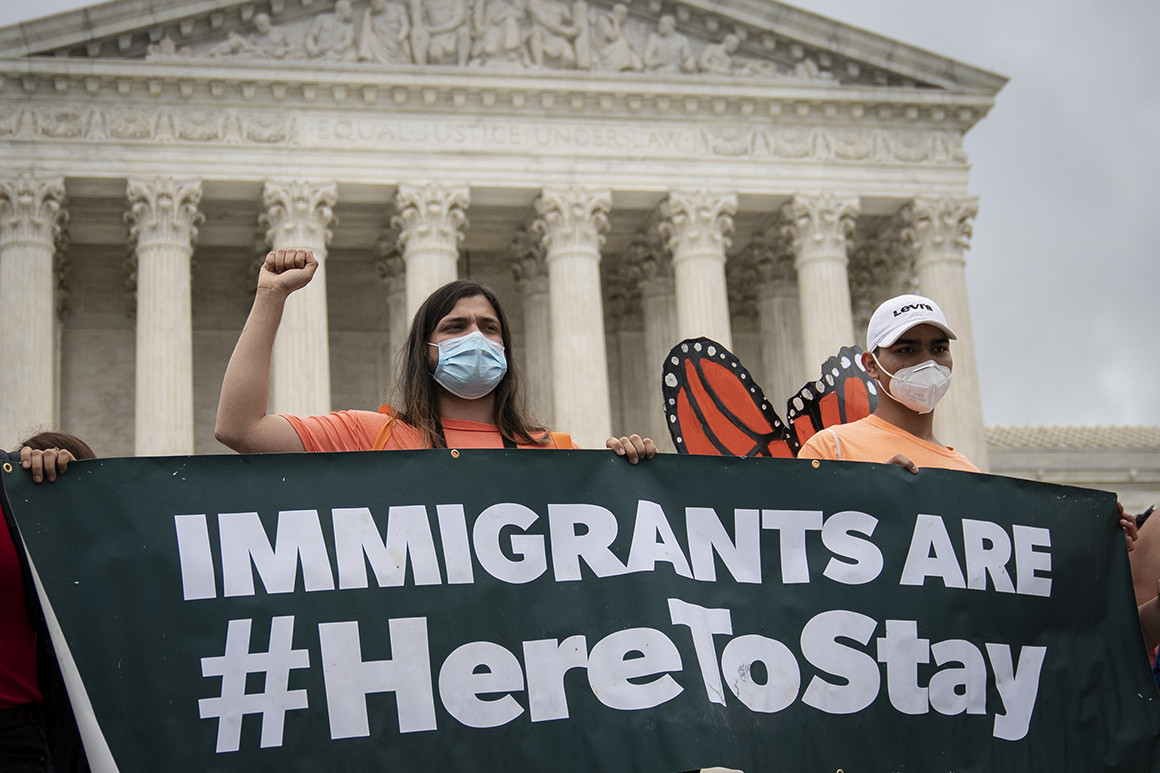On Dec. 4, a federal judge in New York ordered the Trump administration to begin accepting new applications for Deferred Action for Childhood Arrivals (DACA). The following Monday, the federal government announced that they would resume reviewing new applications. Almost a month ago, that same judge declared that the Acting Secretary of the Department of Homeland Security (DHS), Chad Wolf, was not authorized to implement new rules from last July that forbade new DACA applicants, and reduced the renewal period from two years to one year. This comes after four long years of court battles that have threatened the fate of the program that has provided more than 800,000 young immigrants with documentation that allows them to work and go to school.
DACA, was created by President Obama in 2012 through executive order. The extensive legal battle surrounding DACA started in September 2017 when the Trump administration attempted to rescind the program, arguing that the Obama administration bypassed Congress in issuing the executive order, thus making the program illegal. Trump’s revocation of DACA was challenged in states like California, New York, and Maryland, to varying results. The battle made its way to the Ninth Circuit Court of Appeals in November 2018 and kept the preliminary injunction put in place against the termination of DACA. Finally, in June 2019, the U.S Supreme Court agreed to hear arguments in the case for DACA. This past June, the U.S Supreme Court issued a 5-4 decision that blocked Trump’s attempt to rescind DACA, arguing that the way the Trump administration went about terminating the program was unlawful. The decision also ordered for new applications to be accepted again. The Second Circuit Court of Appeals confirmed this decision in July.
The decision to keep DACA comes as a temporary relief for many young immigrants who rely on the program. However, as much as DACA is a protection, it is also not a definitive solution. Since it was created by an executive order, the program can be easily undone, as Queens College (QC) political science professor Michael Krasner explains: “…just as Biden can undo what Trump has done, Trump could undo what Obama did.” This puts a program that hundreds of thousands of immigrants depend upon in jeopardy. As Diego Fernando Ortega, a DACA recipient who attends Queens College, puts it, “DACA’s like a safety net solution for much larger problems US institutions face, but it targets one of the most vulnerable groups.” It’s important to remember that DACA does not provide a path to citizenship or even residency and to renew a permit alone costs $495 every two years. Ortega describes it as “being bound to pay that much money every few years just to reside in a country I’d been living in for over 13 years for free.”
With that being said, the fragility of DACA was shown under the current administration. Almost 650,000 DACA recipients were left in a state of limbo as courts fought out the lawfulness of the termination of the program and the program itself. With a Biden administration immigrants are hopeful yet skeptical about what immigration reform would mean under the next administration, although President-Elect Biden has promised to reinstate DACA. Immigrants can’t vote but their lives are directly impacted by the decisions made by the government.
The U.S District Court for the Southern District of Texas will be hearing an argument in Texas v. Nielsen which argues the legality of DACA on December 21st.











